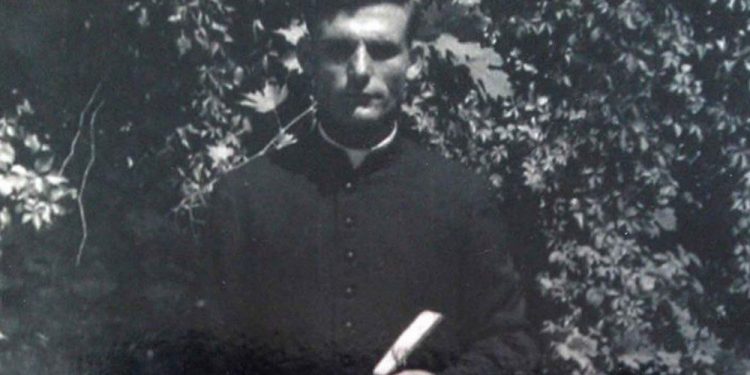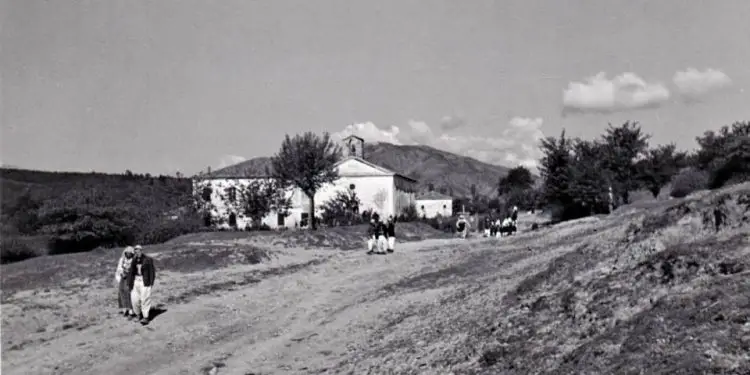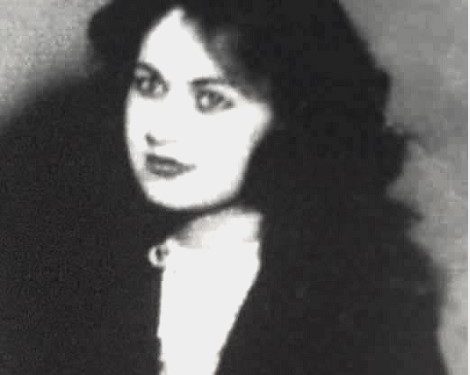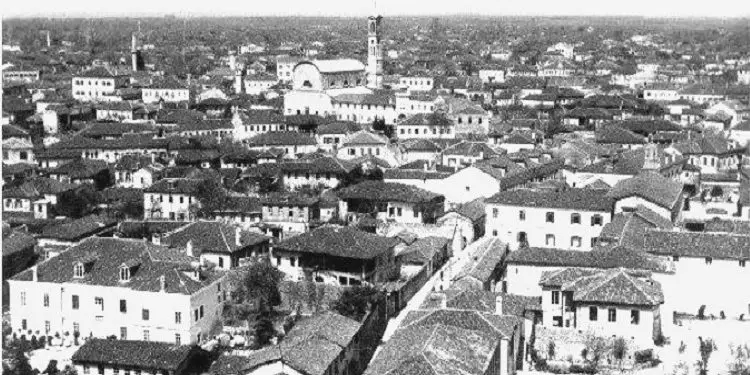By Agustin Miraka
Memorie.al / Laura Keçi was only 16 years old when she was arrested and then sentenced, thus marking the only Albanian woman who was sentenced at such a young age, during the years of communism in Albania. After the change of times, together with her family, Laura moved from Shkodra to America, from where she has not returned for years. However, he did not leave the story untold, even if it was not clarified in detail. Four years of the life of a 16-year-old girl, seen today through the eyes of a psychologist, spent in prison, would never be erased from memory, even if they were among the quietest.
Without considering the sufferings and tortures that she had to endure, she herself narrated the experience that she would like to forget: “My father, Gjeto Keçi, a former warrior of Spain, attached to the ideal of his time , was quickly disillusioned by the communist system.
This he expressed with a loud voice and indignation, which was enough to consider; enemy of communism, the ideal he believed in so much. My father’s convictions, clearly dictated to me, found bed and developed slowly but unstoppably. Since I was young, my father’s “guilty shadow” followed me everywhere, I was, in a word, a persecuted girl, no matter how little I knew the meaning of this definition…”!
This was the first reason why Laura was under the attention of the Security. The second came from himself, but it was all inevitable…! “The great hatred I had for the communist system, there were times when I showed it openly.
In this period, I am talking about the year 1973, the time of the so-called ‘Cultural Revolution’, I managed to distribute tracts that I had formulated myself and placed in the school register sheets, which I later deposited in the investigator…! Someone was following me.
Otherwise, there is no way to explain that after I made the cross in front of the church, in the eyes of two of my friends, one of whom denounced me, what happened happened. My picture was put in the Atheist Museum.
Even after prison, I saw the picture there. The investigator who took over the case, Shyqyri Çoku, would face a 16-year-old as an “enemy”. During the investigation, psychological violence was used, the investigator’s lecherous gaze wanted to bring me to my knees at any cost.
He never succeeded in this. They wanted to use electroshock as torture, but I couldn’t try it, because in response, I went on a hunger strike, where I went 75 hours without eating. They put me in a cell with a spy and provocateur, where I immediately realized that I was in a trap.
A psychiatrist was then brought to me, whom I begged not to record anything that he did not find. I wanted to show that I was completely fine and I did everything consciously…”!
These are just the core of Laura’s bitter memories, the ones she wouldn’t even want to mention if they didn’t ask her. Fatbardha Mulleti Saraçi has included her story in the book “Calvary of women in the prisons of communism”.
Among other hazy memories, Laura’s confession ends: “My trial was also the end of the comedy they played with me…! Me, the 16-year-old accused and the witnesses: the teachers, the director, my friends and a little further the people, the one who was always with me.
From the answers I gave to the judge about the party and the leadership, he said: ‘These words alone are enough to suffer double the punishment’. The prosecutor told me that; they would crush me like a worm.
The school principal continued: “The sword of justice will fall on Laura and all enemies.” Mine got up to say that; what an enemy could be an immature girl…!
Of the initial sentence of eight years, due to my age, I was given four years. As soon as I arrived at the cell, five policemen rushed at me like mad, to tie my hands and feet, because I had insulted their leader.
I remember the room turned all red and I bit the leg of the one who put it on my chest. Through the calls, I felt my mouth fill with blood. This was the story of my trial and punishment…! While it was not easier even after the prison, when I moved to the ‘Zunkth-Kashta’ Enterprise, to work”.
As the scheme is already known, those above her would constantly ask her to make self-criticism, in the face of which she always chose silence. This is the reason why the young man’s eyes above his head to measure his every move, never left him, until time opened the doors to escape…!
Laura Keçi’s testimony about the torture of Dom Mikel Beltoja
Those who knew him closely knew very well that Dom Mikel Beltoja was not distinguished for anything special, as they have said; he was not erudite like his predecessors; he did not display any extraordinary insight, even in the elaboration of sermons; he was not an outstanding orator like Father Anton Harapi, Dom Ndre Zadeja, Dom Kolec Prenushi, etc.; but in determination and dedication, he did not give way to anyone.
But in the end, even those few years of priesthood, after the churches were closed in 1967, did not leave any special mark on the ranks of the faithful, during his service in Dajç of the Buna Coast, Shllak and Barbullush.
When the infamous “Cultural Revolution” led to the closing of churches, Dom Mikeli retreated to the village of Beltojë, near his family. Meanwhile, the mass arrest of those priests who were still in service had begun (most of them had tried prison at least once before in their lives).
Dom Mikel retired to Beltojë, but he did not retire for a moment from the religious services that the faithful asked him. While the other priests, still “free”, were cowering in terror in some shack or, near a relative, he went wherever he was called: from Barbullushi, to Shllak, to where people needed to believe the most, that this could not be the end.
He wore wedding crowns (secretly), baptized and baptized children, without asking what the consequences would be. The rural priest, silent but also sweet, simple and brave, did not know to what extent the State Security was following him. When someone warned him that; what was he doing to himself, he answered with a smile:
“Okay, that’s what the party said?! What about the law? Is it forbidden by law to baptize children? But his freedom did not last long. On April 19, 1973, it fell into the hands of the State Security. The motive; “Agitation and propaganda against the Party”.
First, the sentence for him was for seven years in prison, but there, during his last words, in the miserable hall of the Red Corner, in front of his fellow villagers, in addition to the preaching words, Dom Mikel Beltoja stood up and added: “Here, in the dock, should have been Enver Hoxha, not me”!
You can already imagine how the “pious” danced there in front of the jury, Dom Mikel Beltojë’s blood shone on his clothes and, however, it continued; “Forgive me, God, they don’t know what they are doing!”
Dom Mikel Beltoja was sentenced to be shot. In those few months of imprisonment before the last act, 16-year-old Laura Keçi was also near his cell, who tells the gruesomeness of the event:
“Even before he was arrested, I had heard that a young priest preached fearlessly about Jesus Christ and held religious services. That’s why it would immediately kill my ear when the investigators, while escorting me to the cell, said; “What to do with her, she’s still small, if she was a little bigger, I would willingly shoot her together with the priest”, and shot that I was put in a dungeon near him.
I saw how commander Basri Temja brought food to Dom Mikel, who was chained hand and foot, awaiting the execution of the decision to shoot. The dish, as it was understood, was very hot, after the burning, the screams of the priest could be heard as he could not swallow it.
When he closed his mouth, you could hear the crack of the aluminum key on the cement, which had fallen after the bowl was thrown in his face, together with the dish.
This torture was repeated every day, or even twice a day. Another dungeon policeman, coming with his heavy boots, opened the dungeon of Dom Mikel, only to hear the crunch of the bones of his kneecaps from the kicking he suffered.
The blows were so hard I could swear his bones were breaking. I heard these sufferings and torture several times during the months that he stayed in the cell next to me until he was shot.
At least that was the decision, because one of the guards, quite different from the others, named Ndue, told me that when they took him and left for Tirana, they gave him an injection on the way and he died immediately.
They took him dead and, as it was said, he was taken by the reliable government doctors, to be used for study by the students of the Faculty of Medicine of the University of Tirana”. Memorie.al















